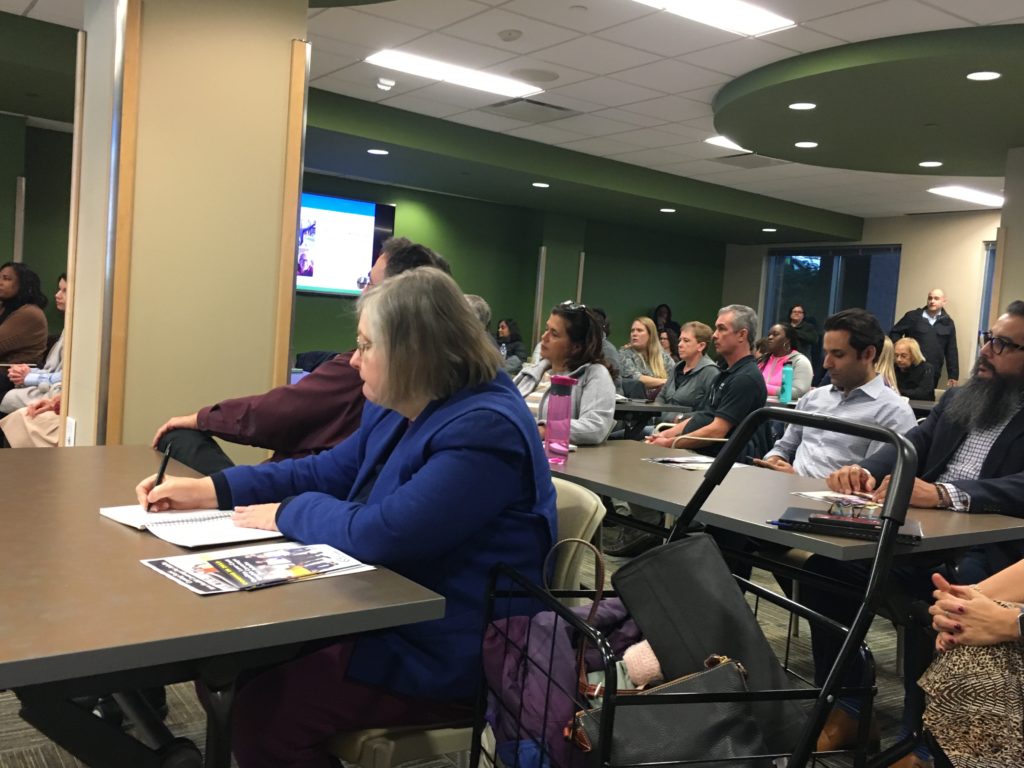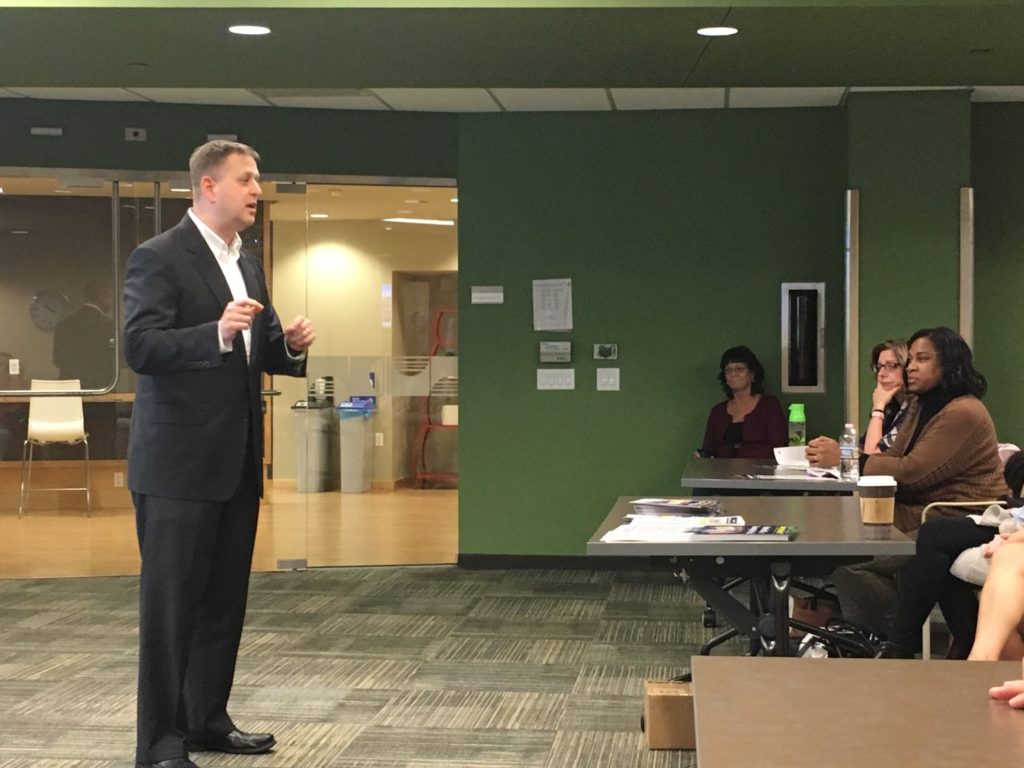Fresh off the high of securing expanded Medicaid coverage for thousands of Arlingtonians, advocates and healthcare professionals have a new challenge to confront: how to reach people newly eligible for health insurance, when they might have no idea about the change.
That’s a big part of why state officials and Del. Patrick Hope (D-47th District) convened a meeting of more than 100 people Friday (Oct. 26) at the offices of Arlington’s Department of Human Services, offering strategies for just how they can help ensure that everyone who now qualifies for Medicaid gets covered when enrollment starts Thursday (Nov. 1).
The program’s expansion, the result of a years-long battle in the General Assembly that culminated in a compromise signed by Gov. Ralph Northam this spring, will allow low-income adults without any children to access health coverage through Medicaid for the first time ever in Virginia.
It also bumps up the income caps for families and people with disabilities, meaning that roughly 400,000 people are now eligible for the program across the state. And in Arlington alone, roughly 7,000 people could join the Medicaid rolls, according to Anita Freeman, the county’s director of human services.
“It’s a really gratifying day that we’re at this point, talking about enrolling thousands of people to get healthcare who didn’t have it before,” Hope told the crowd. “It’s a long day in coming.”
The expansion is indeed a development welcomed with jubilation by Democrats, and even some moderate Republicans, but it won’t come without complications. Not only will the process of enrolling more people in Medicaid cost localities a bit more money, but state and local officials alike have to work to make people aware they actually stand to benefit from a program that’s long shut them out.
“We’re undertaking the largest expansion of health coverage in Virginia history,” said Dr. Jennifer Lee, the director of the state’s Department of Medical Assistance Services. “We’re all super excited about it, but there is a lot of change too.”
Over the course of the meeting, Lee outlined a variety of ways that her department, which manages Medicaid in the state, plans to start reaching people about their new eligibility. That includes work with Community Service Boards, organizations in each Virginia locality focused largely on overseeing mental health and substance abuse services, and even local and regional jails.
As Lee points out, many people who are currently incarcerated have their healthcare needs covered by the state, but could be shifted to Medicaid under the new rules. And for people looking to re-enter their communities, particularly after being convicted on drug charges, she wants to connect them to Medicaid to get them the tools they need to confront their substance abuse issues.
“We want to get them in to recovery, so that they aren’t constantly cycling in and out of the system due to their addiction,” Lee said.
State officials will also launch a series of mailers to people receiving other government benefits, like food stamps, who may be able to easily enroll in Medicaid coverage by providing a few more details to officials.
But Lee also implored attendees, many of whom came from nonprofits and other groups working with low-income people around the county, to help become “spokespeople” about the new Medicaid realities in their own neighborhoods. She’s particularly interested in finding people who can reach non-English speakers, as they might have the hardest time understanding the maze of new rules governing the program.
“The best message for folks is that the rules have changed in Virginia Medicaid,” Lee said. “If they’ve applied before, they should try again.”
Complicating matters further for Lee and her fellow healthcare advocates is that the rules surrounding the Medicaid expansion will change sometime in the future. That’s because the program will eventually require enrollees to prove that they’re employed, in school or pursuing a job in order to receive coverage, a stipulation insisted on by some state Republicans initially hesitant to back Medicaid expansion.
Yet Lee explained that the state will need to get federal approval before putting those requirements in place. She said her department will submit an application to kick off the process as soon as this week, but there’s no telling when the state will earn the green light.
“It could be next week, six months or two years,” Lee told ARLnow in an interview after the meeting. “And then there will be some ramp-up time once we get the approval, because these are complicated new rules we’ll have to put in place.”
Some Republicans have grumbled that Northam’s administration is taking too long to implement the new work requirements, and that they’ll likely contain too many “loopholes” to help people avoid working — applicants who can prove they have an illness or condition that prevents them from holding a job will be able to earn exemptions from the requirements.
But Lee believes the state’s work requirements are “right in line” with other recently adopted standards, like those in Kentucky and Indiana. She also vigorously disputes any implication that the state is dragging its feet in setting up the new requirements, noting that it’s pressing for federal approval just as quickly as it can.
“Indiana planned for years to put theirs in place,” Lee said. “When you look at other states, we’re actually pursuing an extremely aggressive timeline here.”
Yet, beyond all the complications and the political squabbling, Lee worked to stress just how valuable the Medicaid expansion will be for vulnerable Virginians.
She once worked as a physician in the emergency room at the Virginia Hospital Center in Arlington, and told a story of encountering a woman who suffered an acute stroke and wasn’t able to walk, but initially declined to be admitted to the hospital because she was uninsured and feared she couldn’t afford treatment.
“She told us, ‘I can’t be admitted because I have to go to work tomorrow,” Lee said. “So don’t forget, this is real. This is for our friends, our family, who desperately need access to care, and can’t get it.”




